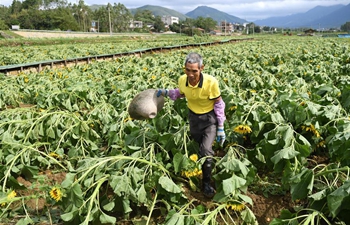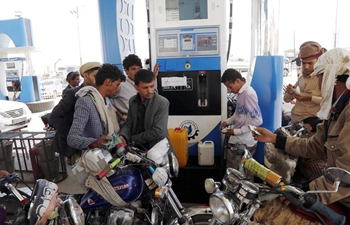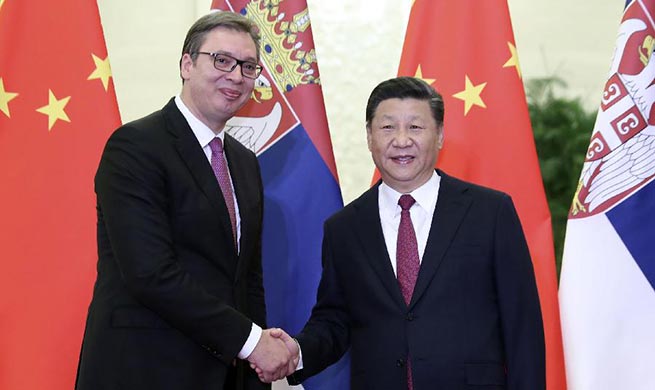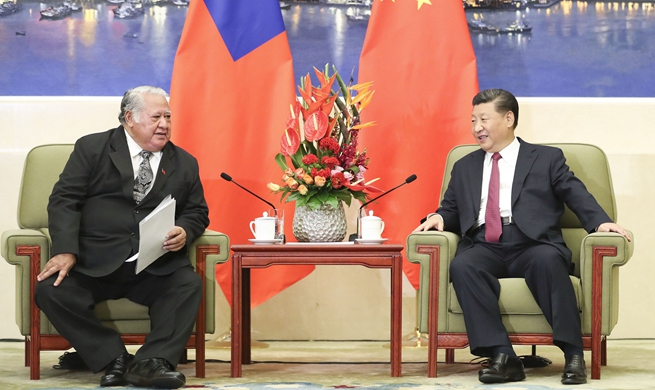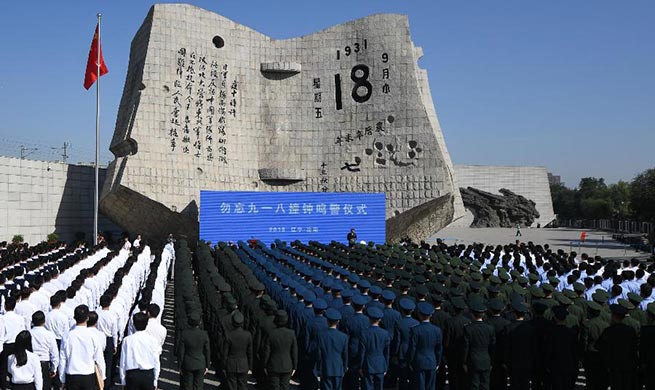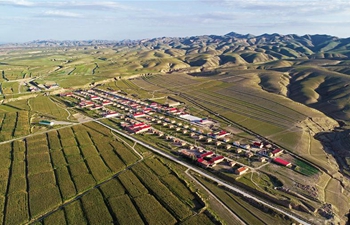ANKARA, Sept. 18 (Xinhua) -- An anticipated Syrian military offensive on the northwestern province of Idlib is on hold after Turkey and Russia reached a deal following Ankara's guarantee on behalf of the rebel groups, experts said.
The deal was reached Monday by Turkish President Recep Tayyip Erdogan and his Russian counterpart Vladimir Putin in Sochi, Russia, as the two sides agreed to create a demilitarized buffer zone in Idlib, the last rebel stronghold.
This agreement brings Turkey to a position of giving a guarantee on behalf of the rebel groups, the experts said.
"Moscow is convinced that it would not be able to handle the burden of a humanitarian tragedy in case of a military offensive in Idlib," said Metin Gurcan, a Turkish security analyst with the Istanbul Policy Center of Sabanci University.
Russia has also secured its airbases in northern Syria, including its airbase in Hmeymim as a guarantee by Turkey under the Sochi agreement, he said.
Gurcan recalled a trilateral summit of Turkey, Iran and Russia held in Iranian capital Tehran early September, which ended without agreement as Erdogan's call for a ceasefire in Idlib was rejected by Moscow and Tehran.
Erdogan's proposal for a ceasefire by all parties in Idlib was rejected by Putin on the grounds that those groups were not represented at the table there, he said.
"Now Turkey has given a guarantee on behalf of radical groups which Putin earlier said that ceasefire cannot be discussed because they were not represented at Tehran meeting," Gurcan said.
Now everyone is curious how Turkey has given guarantee to Moscow and how will those radical groups accept a proposal for demilitarization by surrendering heavy weapons and withdrawing from the demilitarized zone, Gurcan noted.
"Ankara has given this promise relying on its military power on the ground and on its capacity to convince armed opposition groups," he said.
Turkish army has reinforced its presence in Idlib in the past few months, and Turkey has 12 military outposts with 1,200-1,300 troops on the border line of the province separating the rebel stronghold from the pro-Iran militia-controlled South of Aleppo and the government-controlled southeast, Gurcan said.
Rebel groups, including the Free Syrian Army, in the region are gathered with Turkish backing under the banner of the "National Front for Liberation."
Putin and Erdogan agreed on Monday in Sochi to create a 15-20 km buffer zone along the line of contact between rebels and regime troops by Oct. 15.
The agreement entails the "withdrawal of all radical fighters" from Idlib as well as "heavy weaponry from this zone," Putin said at the joint press conference after signing the deal with Erdogan.
By the end of the year, transportation routes between the key port of Latakia and Aleppo as well as the city of Hama must be restored, Putin added.
The Russian leader also said all heavy weapons had to be withdrawn from the zone by Oct. 10, according to Erdogan's proposal.
Ankara has been warning against any military offensive by Russia-backed Syrian regime forces in Idlib, warning that it would lead to a humanitarian crisis and refugee influx to the Turkish border.
Turkey and Russia, along with Iran, are guarantors of the Astana deal which declared ceasefire in four de-escalation zones in Syria, including Idlib.
Turkey will deploy more troops in Idlib province after the Sochi deal, Turkish Foreign Minister Mevlut Cavusoglu said on Tuesday.
"We will need extra troop reinforcements. Turkey and Russia will patrol on the border areas. Civilians and moderate (opposition) will stay here," Cavusoglu said.
Another outcome of the Sochi deal is that Turkey and Russia prevented a possible attack by the United States in Idlib, Naim Baburoglu from Aydin University said.
He recalled that the U.S. was giving signals that it wanted to intervene in the situation in Idlib, if Syrian government troops launch an assault on the rebel stronghold.
Washington recently threatened to take swift and decisive actions against any use of chemical weapons in Idlib.
"This agreement showed that the U.S. has room for maneuver only in the east of Euphrates and Manbij region," Baburoglu said.





